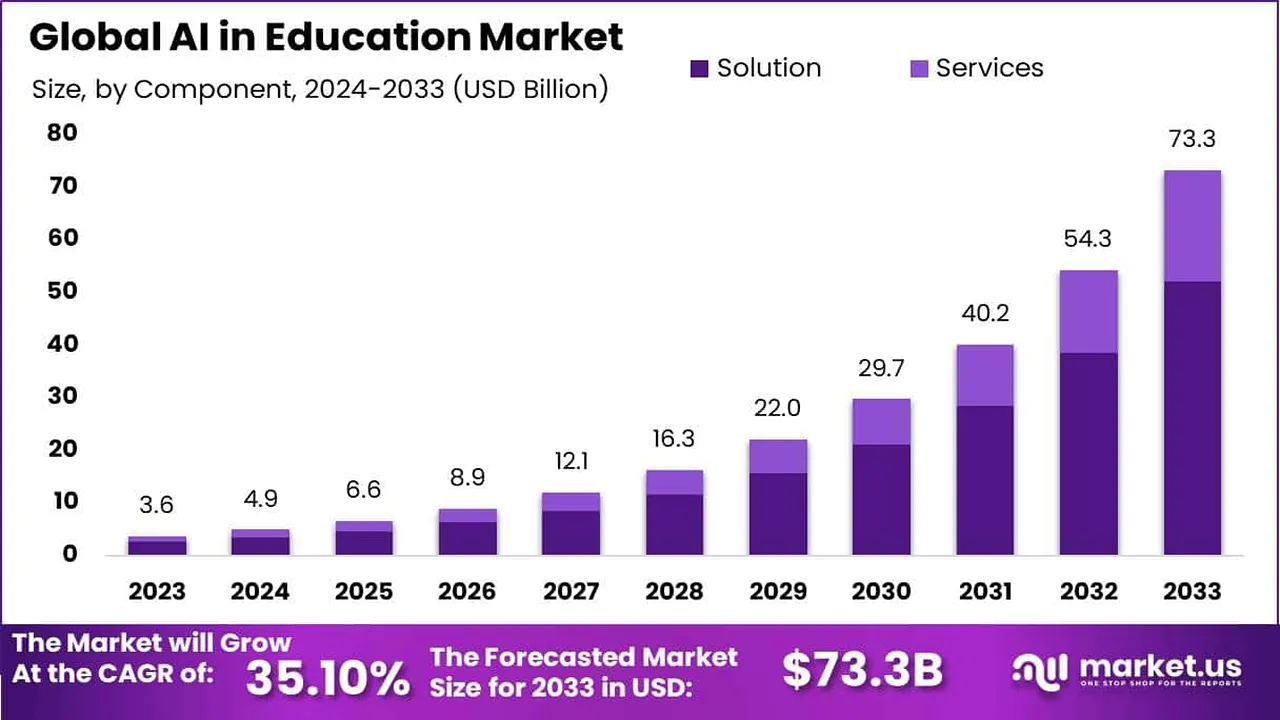The education sector stands on the threshold, and in many respects has already crossed it, of a technological revolution driven by artificial intelligence. Forget dusty textbooks and one-size-fits-all lectures – the future lies in adaptive, personalized, and incredibly effective learning. And these aren't just a_fancy words: today, May 28, 2025, the analytical company ResearchAndMarkets.com released (or ensured wide distribution through channels like Business Wire) its latest global "Global AI in Education Market Report 2024-2025 & 2030". The figures presented in the study are not just impressive – they are staggering: the global AI in education market is projected to reach a colossal $23.54 billion by the end of 2025. This isn't just growth; it's a tectonic shift deserving the closest attention.
What is behind such explosive interest and, consequently, financial injections into AI for education? The new ResearchAndMarkets.com report highlights several key drivers. Firstly, it's the insatiable thirst for personalization. AI platforms can analyze the individual characteristics of each student – their learning pace, strengths and weaknesses, preferred content formats – and adapt the curriculum on the fly. Secondly, it's the increase in administrative efficiency: AI takes over routine tasks such as grading tests, creating schedules, and managing data, freeing up teachers' time for direct work with students. Thirdly, it's the acute need to develop skills relevant to the AI era – from digital literacy to the ability to interact with intelligent systems.
Artificial intelligence is penetrating all corners of the educational landscape. The report details which segments are showing the most dynamism. This includes K-12 systems (school education), where AI helps in early diagnosis of learning difficulties and offers gamified formats. Higher education, where AI tutors and smart campuses are becoming a new reality. And corporate Learning & Development (L&D), where companies use AI for rapid employee reskilling and developing necessary competencies. The markets for language learning with AI tutors and platforms to support students with special educational needs are also highlighted separately.
What awaits us beyond the 2025 horizon, on the path to 2030? ResearchAndMarkets.com analysts predict a further strengthening of the role of AI mentors capable of providing individual support 24/7. The flourishing of adaptive learning platforms is expected, which will not just adjust to the student but anticipate their needs. Immersive learning using a combination of AI, augmented reality (AR), and virtual reality (VR) promises to turn passive knowledge acquisition into an exciting interactive experience. And, of course, issues of ethics, transparency of AI algorithms, and student data protection will come to the fore.
A serious battle is unfolding in this multi-billion dollar market. It involves both tech giants offering their AI platforms and cloud solutions, and numerous innovative EdTech startups developing niche products. The report likely analyzes the competitive environment, key partnerships, and strategies of major players. But the stakes are high not only for business. It's about the future of education, about preparing new generations for life in a world where AI will play an increasingly decisive role. Problems of technology accessibility, the digital divide, and potential bias in AI algorithms remain serious challenges.
Behind the impressive figures of market forecasts lies something much more important – AI's potential to radically improve the quality and accessibility of education worldwide. It's an opportunity to give each student an individual development trajectory, help unlock talents, overcome difficulties, and acquire the knowledge and skills necessary for successful self-realization. However, it is also a huge responsibility – to prevent technology from exacerbating inequality or turning learning into a soulless automated process.
The "Global AI in Education Market Report 2024-2025 & 2030" from ResearchAndMarkets.com is not just a set of numbers, but a roadmap for an emerging future. The AI in education market is growing by leaps and bounds, and this indicates a fundamental paradigm shift. The question is no longer whether AI will be used in learning, but how we can use its power most effectively, ethically, and for the benefit of all society.
